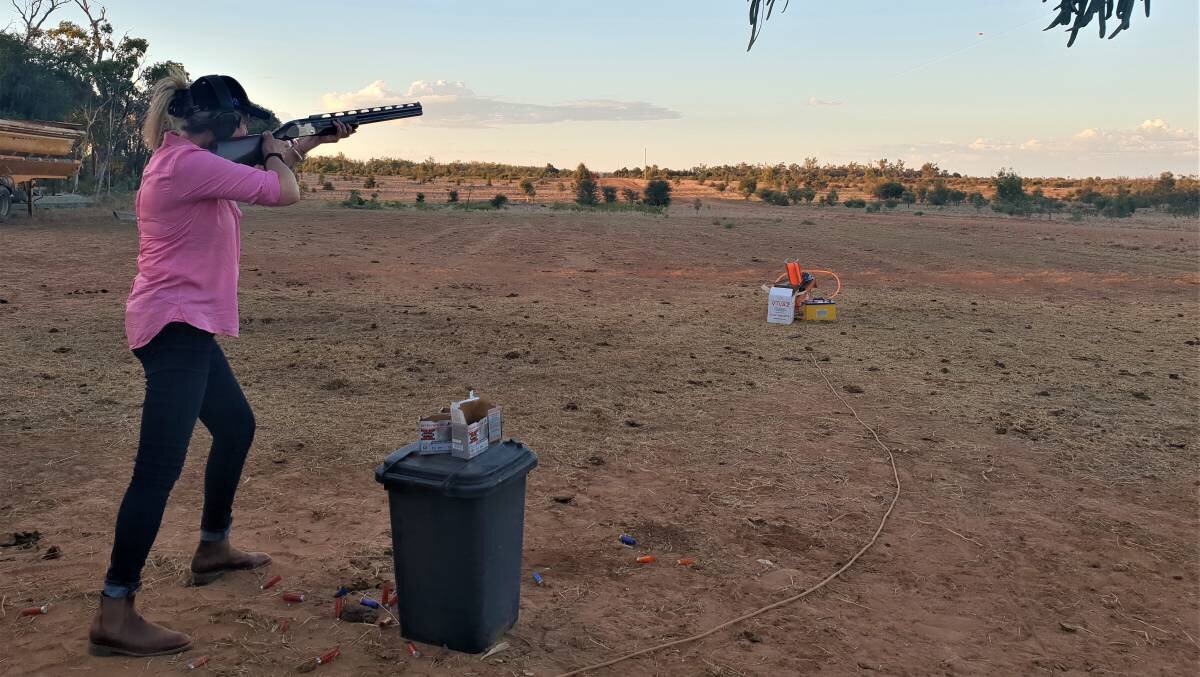
Most arguments against hunters and shooters are based on misinformation, not science and facts. My goal is to cut through the noise and use real information to discern fact from fiction.
Gun owners are more likely to be criminals
The Australian Institute of Criminology has time and time again found that it is the unlicensed person with an unregistered firearm that is responsible for crimes involving firearms, not our law-abiding and registered firearm owners. In almost all cases, the crimes are drug, gang and organised crime related.
Humans don’t need to hunt or shoot anymore
Hunters recognise that populations of certain animals can’t be allowed to exceed the carrying capacity of the land, and are an effective method of feral pest control. If there are too many deer for example, they’ll end up eating away the vegetation and destroying Australian farms along the way.
Invasive species pose the greatest risk to our flora and fauna, impacting 82% of all threatened species in Australia. A conservative estimate puts the economic impact of pest animals at between $720 million and $1 billion annually in production losses as well as public and private management costs. Feral deer alone are a reservoir for diseases endemic to Australia: Wildlife Australia indicates that 16 diseases which can be transmitted to humans have been identified in feral deer.
Theft from registered gun owners is a key contributor to the illicit gun market
The number of stolen firearms represents 0.05 per cent of the total number of registered firearms in Australia, with this percentage declining, despite an increase in firearm ownership. Illegal imports are widely accepted as the most likely source of illegal firearms, with 25 major shipments being missed by Customs in 2012-2013 alone.
Humans have an unfair advantage when hunting & shooting
Critics of hunting often argue that modern technology has removed the element of fair chase in hunting, believing that it is now ‘too easy’. The reality is that almost all technological advances in this area have been to address safety and comfort, not effectiveness. Only in the use of scoped rifles have improvements made a significant difference, yet it takes a hunter of considerable skill and experience to take game from beyond a prey’s natural range. Even in the bush large game can rarely be seen as much as a hundred metres away.
This criticism fundamentally misunderstands the challenge of hunting, which is to find game within effective range to deliver a deadly shot before the animal becomes aware of the hunter’s position, a task that requires immense patience and endurance. That’s why hunters don’t always do a lot of shooting; that position is hard to achieve.
No one should need to have a handgun or pistol in Australia
Australia has always had strict handgun ownership regulations. Civilians may only be in possession of handguns (semi-automatic or not) for club use, if not part of their professional tools of trade.
Sporting club handgun shooters must have passed rigorous police checks, safety courses and probationary periods, and it can take up to 12 months before they can even own a small-calibre pistol.
Our sportsmen and women use semi-automatic handguns for competition at club, state, national and international levels including the Commonwealth Games. And as the Institute of Criminology has stated, “If you impose greater penalties on handgun owners, it is not going to impact on the persons who are likely to use them in crime”.
Hunters are cruel and hate animals
Hunters don’t kill every animal they see; they’re directly invested in and passionate about the survival of the species that they hunt. The enjoyment for hunters goes far beyond the kill; it’s a passion for time spent out in the bush enjoying our country’s rugged and sometimes unforgiving landscape. Hunter’s don’t just observe nature through a roadside viewing or a bush walk, they’re an active participant in it and understand the value of preserving it.
Hunting is one of the few activities in modern society in which the killing of un-endangered species is regulated to ensure safety and conservation. Open seasons are legally specified by species and weapon, while hunters adjust rifle calibre to produce a clean, quick, and humane kill. Hunting is about discipline, not destruction.
Modern hunters also embrace a number of social and ecological responsibilities, having to balance the chances of a successful hunt with the competing values of (a) preserving the health of prey species and their natural habitat; (b) a fair chase; (c) causing minimum harm with a clean shot and; (d) the safety of themselves and those around them.
Kids shouldn’t learn how to use a firearm
Shooting is a sport that accommodates almost all disabilities, is gender-neutral and allows for the safe use of firearms under direct supervision.
As an Olympic and Commonwealth Games sport, shooting requires skill and self-discipline. It also teaches responsibility and respect as a result of an ingrained culture of safety.
Without the ability for our youth to safely learn this craft, we would cease to have our champion shooters; a sport that has existed in Australia almost as long as cricket.
Shooters & Hunters hate the environment
Hunters understand their prey and the environment that they inhabit, while also recognising better than most how unpredictable these environments can be. That’s why hunters rebuild wetlands and create traps for predators to increase the survival rate of ducklings - to ensure the strength of the species that they engage. And the strength of a species is about more than numbers. Wildlife doesn’t manage itself; left alone it will eat itself out of habitat and into extinction.
References:
